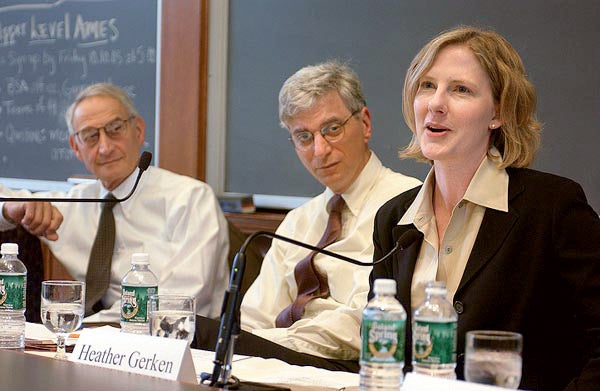By: Joseph Rosenberg, J.D. ’19

“An hour-and-a-half?” I repeated over the phone. “But the trial is starting now!” Today, I was prosecuting an operating under the influence (OUI) jury trial, but the state trooper who arrested the defendant had forgotten. Now he was on the way, his day off interrupted.
I relayed this information to the judge in Boston Municipal Court’s Dorchester District Court. He was more understanding that I thought he would be. While we waited, we could return to the problem more immediately at hand: a surprise witness (the complaining witness, no less) had shown up at 8am after not responding to our summonses for months. He recounted some observations and third-party statements that weren’t in the trooper’s report. I wasn’t sure what to do, but I thought I had better tell defense counsel immediately. The defense counsel told me he’d object to at least the new third-party statements because they were hearsay.
“Your honor, that’s actually not hearsay. It’s not being offered to prove the truth of the matter asserted but rather to show its effect on the listener,” I argued. I was an Evidence scholar just weeks removed from my final exam. That third-party statement was excluded.
After the evidentiary hearing—while still we waited for the trooper—the judge suggested that we begin the trial. Before long, I had conducted voir dire, opened, and put on the complaining witness.
It was speeding by. Now the trooper was here. I met him, and then he took the stand ten seconds later. I had prepared an examination for him and hoped to meet with him beforehand to prepare. Alas! This would have to do. It went better than expected. He was an expert. He’d done this a hundred times.
I rested my case, defeated a motion for a directed verdict, and closed. I couldn’t believe I had just done all that. I had no idea what I was doing; I was sure I’d lost. I was happy that I would lose, actually. True, the defendant was drunk— breathalyzer results that the jury couldn’t see confirmed that he was twice over the legal limit—he was driving, and he caused a crash. But he was younger than I was, he had no record, and his parents were there in the courtroom to support him. He held the courtroom door open for me once. I was happy for him: he had the good fortune to come up against me. He could move on from this mistake, never drink and drive again, and no harm would have been done.
The jury returned after about an hour and found the defendant guilty. I didn’t react on the outside, but my mind was racing. “I won?! Good for me—he has a private lawyer. But poor guy. Now he’s been convicted. I convicted him.” I couldn’t look at him or at the jurors. When the jurors finally filed out, the judge said: “Alright, shall we proceed to sentencing?” “Sentencing?” I asked. “Of course, your honor, just one moment.” I hadn’t had any idea that sentencing for OUI convictions takes place right then and there. I turned to my supervisor and asked her what was going on. She said to ask for one year of probation with mandatory attendance at alcohol counseling: the standard sentence for a first OUI offense. “Can I ask for six months?” I asked. “Sure.” My proposed sentence—crafted at counsel table the moment before it was offered—was accepted by defense counsel as “generous.”
I picked my things up off the table and finally turned to the defendant. He was facing the back of the courtroom. His head was buried in his parents’ chests, and they held him tight. His whole body heaved as he sobbed. I shook defense counsel’s hand and walked out as quickly as I could.
At 5:30, I left the courthouse and started my walk towards the Shawmut stop on the Red Line. I called my girlfriend and my parents to tell them about my day—the good, the bad, the I-still-don’t-know-what.
Filed in: Clinical Student Voices
Contact Office of Clinical and Pro Bono Programs
Website:
hls.harvard.edu/clinics
Email:
clinical@law.harvard.edu